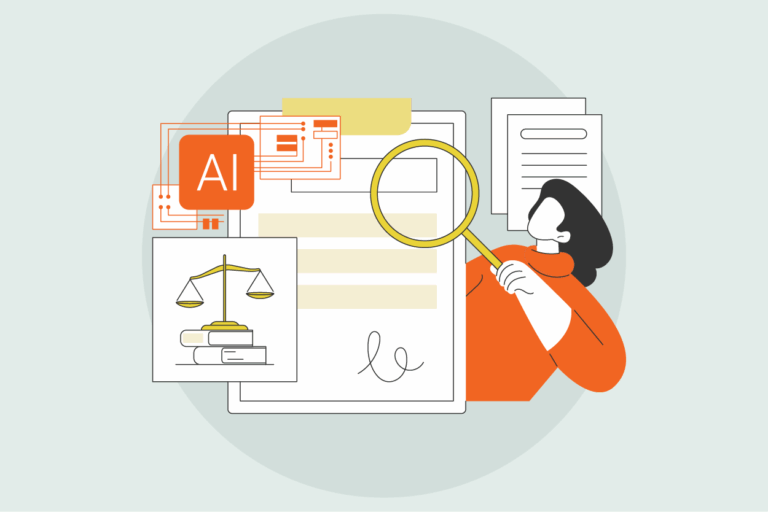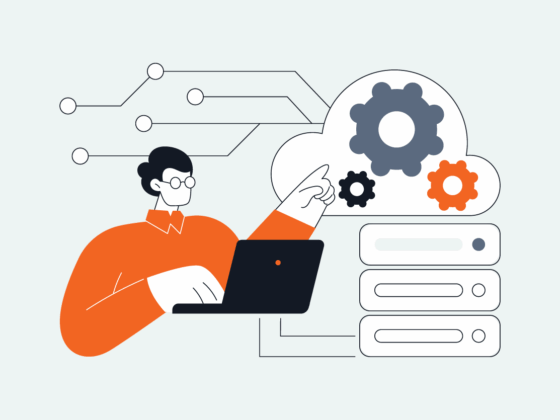The buzz about AI paralegals taking over the legal world is everywhere, but the reality is far more nuanced. We’ll break down why these predictions miss the mark, what paralegals actually do that AI can’t, and how to thrive in an AI-enhanced legal landscape.
When AI Gets It Wrong
Picture this: You’re a paralegal, scrolling through your morning coffee break, when you stumble across a headline that makes your heart skip a beat – “Will AI Replace Paralegals?” Predictions are everywhere, with paralegals landing at #5 on a recent “jobs to be eliminated” list.
Before you start updating your resume, take a deep breath. Brett Burney from Nextpoint and Doug Austin from eDiscovery Today recently tackled this scenario in their Key Discovery Points video series. While AI is changing the way we work, both Brett and Doug agree that the human expertise that paralegals provide will always play a crucial role in the legal process. Read on to learn more and hear their thoughts.
The analysis in question came from someone using “Deep Research” (a ChatGPT tool) to identify jobs most likely to be replaced by artificial intelligence. Tax preparers topped the list, followed by data entry clerks, telemarketers, bookkeepers – and then paralegals landed at number five.
The AI’s reasoning for why paralegals are supposedly doomed? It claimed that “GPT-style AI can research case law and draft routine filings much faster than humans, handling many paralegal tasks with ease.”
Here’s where things get ironic: This AI technology that is supposedly going to replace paralegals often fails to properly cite legal cases. As Doug points out, we’ve seen countless examples of AI generating completely fake case citations in legal documents. Just recently, a court issued a show cause order after discovering that eight out of nine AI-generated case citations didn’t exist. The idea that AI will replace paralegals makes even less sense when you consider these fundamental flaws.
What AI Doesn’t Understand About Paralegals
The problem with this prediction isn’t just the irony – it’s that it misunderstands what paralegals actually do. The AI’s description focused on document scanning and case law research, which is like saying a chef’s job is just heating food.
Here’s what the AI missed about the real work paralegals handle:
- They’re Human Problem-Solvers: Paralegals identify crucial details in documents that AI would completely overlook. They understand context, catch inconsistencies, and spot the kind of nuanced issues that require human judgment.
- They’re Tech Support Heroes: Many paralegals serve as the go-to tech experts in their firms. When attorneys need to learn new software or platforms, guess who becomes the resident expert? (Hint: It’s not AI.)
- They’re Communication Central: Paralegals often serve as liaisons between different teams, clients, and opposing counsel. They navigate complex human dynamics and manage relationships – skills that require emotional intelligence, not artificial intelligence.
- They Provide Irreplaceable Courtroom Support: From organizing exhibits to creating trial binders to providing real-time support during proceedings, paralegals offer hands-on assistance that can’t be digitized.
The eDiscovery Reality Check
Brett added another crucial perspective: Paralegals often become the ediscovery experts within their firms. They’re the ones coordinating data collection with clients, managing complex productions with opposing counsel, and navigating the technical and strategic nuances of electronic discovery.
This work requires human judgment, relationship management, and the ability to adapt to unique circumstances – exactly the kinds of skills that AI struggles with.
The Real Future: Transformation, Not Replacement
Here is the truth that “AI Will Replace Paralegals” predictions miss: AI will transform how paralegals work, but it is not a substitute for their human skills. Smart paralegals are already embracing AI tools to become more efficient and effective.
When word processors replaced typewriters in the 1980s, people predicted secretaries would be obsolete. Instead, secretaries shifted away from manual tasks such as basic typing and filing and evolved into administrative professionals with expanded responsibilities, such as managing schedules, coordinating meetings, planning events, and managing databases. The technology didn’t eliminate their jobs – it freed them from the tedious typing to focus on more strategic work.
The shift reflected the increasing need for administrative professionals to be tech-savvy and adaptable, utilizing digital tools for improved efficiency. Similarly, AI tools will change how paralegals handle certain tasks, but the core values they provide – human insight, relationship management, and complex problem-solving – remain irreplaceable.
A Reality Check on AI Predictions
The broader lesson here is about setting realistic expectations for AI technology. Yes, it’s powerful. Yes, it’s transformative. But it’s also prone to generating fake legal cases and apparently can’t even spell “dunce” correctly when asked to create an image of a robot wearing a dunce cap (true story from Doug’s experiment).
When evaluating AI predictions about job displacement, consider the source. An AI that struggles with basic accuracy in its supposed area of expertise might not be the most reliable predictor of which jobs it can actually handle.
The Bottom Line
Paralegals aren’t going anywhere. The legal profession needs their expertise, judgment, and human touch now more than ever. While AI will certainly change how they work, making some tasks faster and potentially eliminating others, the value of paralegals is fundamentally human.
So to all the paralegals reading this: Don’t panic about the robots. Instead, stay curious about new technologies, keep developing your uniquely human skills, and remember that no AI can replace the critical thinking and creative solutions that you bring to the legal profession every day.
The future belongs to humans who know how to work AI, not to AI working without humans.
Watch the full discussion between Brett and Doug below:
★ Ready to Level Up Your Litigation Game?
For more insights on the latest in ediscovery and legal tech, visit Nextpoint.com.







